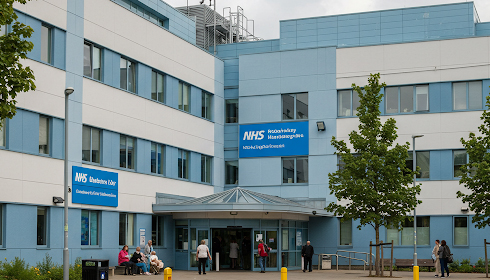
One in Ten Brits Reports Healthcare Issues, Survey Finds
A recent extensive survey published in BMJ Quality & Safety indicates that nearly ten per percent of individuals in Great Britain have encountered harm associated with healthcare provided by the National Health Service (NHS) or faced challenges in accessing care in the past three years. The survey conducted from November 2021 to May 2022 included 10,064 participants from England, Scotland, and Wales, revealing critical concerns in patient care and indicating notable deficiencies in the support systems of the NHS.
The survey findings indicate that 9.7% of respondents reported experiencing harm. The damage manifested in two distinct forms: 6.2% experienced direct harm from the treatment or care provided, whereas 3.5% suffered harm as a result of insufficient access to care. We identified hospitals as the main source of patient care-related harm. Women reported incidents more frequently, while individuals over 65 indicated a lower number of harm instances.
The reported harm typically resulted in a moderate to severe impact on patients. About 45% of participants indicated that the harm was severe, whereas around 38% characterised it as moderate. Data from earlier surveys regarding NHS performance reveal that patient harm remains a consistent concern; nonetheless, the current study indicates that the rates could be greater than those reported in the past. This trend raises concerns, indicating that despite advancements in healthcare delivery, substantial segments of the population continue to experience serious adverse outcomes.
Individuals from disadvantaged groups, such as those with disabilities, long-term health conditions, and members of lower socioeconomic backgrounds, experienced significant impacts. These patients experienced elevated rates of harm and endured more severe consequences. Research from various health studies indicates that vulnerable populations face a higher likelihood of receiving inadequate care. Research published by the Health Foundation indicates that lower-income groups encounter obstacles in obtaining timely and high-quality healthcare, which contributes to overall poorer health outcomes.
The survey also documented the psychological effects associated with adverse events, in addition to physical harm. The questionnaire used in the study was specifically designed to evaluate both medical and physical consequences, as well as psychological harm and issues arising from limited access to care. The emphasis on both physical and psychological dimensions offers a thorough understanding of patient experiences and underscores the necessity for comprehensive support systems.
The survey revealed that although a significant number of patients shared their experiences, only a small fraction pursued formal actions against the NHS. Approximately 66% of individuals who encountered harm communicated their experiences to family and friends, while nearly 60% pursued professional guidance. Only 17% of individuals chose to submit a formal complaint, while just 2.1% proceeded to file a legal claim for compensation. The data indicates a significant level of loyalty to the NHS among patients, as evidenced by 21.6% expressing that they would refrain from seeking financial compensation even in cases of harm.
Patients prioritised effective treatments to address their physical or psychological needs, sought clear explanations regarding the issues they faced, and requested access to treatments that had previously been denied. Among individuals who submitted formal complaints, approximately two-thirds expressed dissatisfaction with the handling of their cases, while only half reported being satisfied with the assistance received from the Patient Advice and Liaison Service (PALS). The statistics highlight a significant shortcoming in the system: the mechanisms designed to assist patients in recovering from harm are not adequately addressing their needs.
Data obtained from patient advocacy groups corroborate these findings. Multiple reports indicate that a lack of adequate explanations or support for patients following a harmful event correlates with an increased likelihood of prolonged psychological distress, which may lead to considerations of legal action. An effective response from the NHS may mitigate further harm by addressing patient concerns promptly and with empathy.
The survey highlights the specific challenges encountered by individuals affected by inadequate access to care. The authors highlight that these individuals necessitate distinct support in contrast to those affected by treatment errors. Identifying and addressing these differences is essential for enhancing patient safety and the quality of care provided.
The survey findings highlight critical issues that require immediate attention from the NHS and policymakers. The NHS, a fundamental component of British healthcare, is currently facing challenges in effectively protecting patients from harm. To effectively address these issues, there is a need for enhanced clinical practices alongside a support system that is both compassionate and responsive to the needs of patients. The significant level of harm and the serious consequences observed, particularly within marginalised communities, necessitate prompt measures to improve patient safety and strengthen support services.